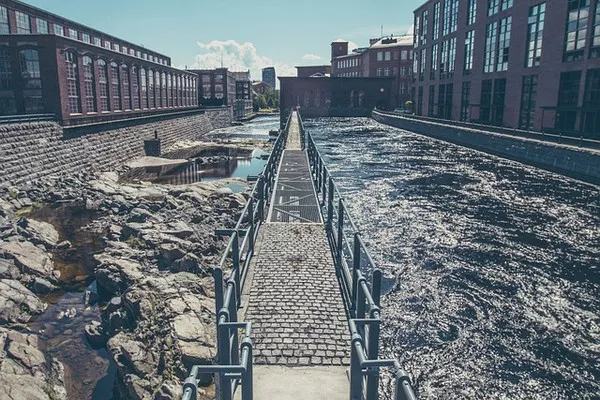Sewage treatment is an essential component of modern society’s infrastructure that often goes unnoticed until it fails. It is the process of removing contaminants and pollutants from wastewater, preventing them from entering our natural ecosystems and causing harm to public health. The treatment of sewage is not just a matter of convenience; it is a necessity to protect the environment, safeguard human health, and ensure sustainable living for future generations. In this article, we will delve into the various reasons why sewage treatment is absolutely imperative.
Public Health Protection
The most immediate and pressing reason for treating sewage is to protect public health. Raw sewage contains a plethora of disease-causing pathogens, including bacteria, viruses, and parasites. When left untreated, these contaminants can infiltrate drinking water sources, recreational areas, and even our homes, leading to the spread of waterborne diseases. Typhoid, cholera, dysentery, and hepatitis are just a few examples of the illnesses that can result from exposure to untreated sewage.
Sewage treatment plants employ various processes to disinfect wastewater, killing harmful microorganisms and removing harmful substances. This ensures that the water released into the environment is safe for both humans and wildlife. Thus, sewage treatment is a vital safeguard against the spread of waterborne diseases, contributing to healthier, disease-free communities.
Environmental Conservation
Treating sewage is not just about protecting human health; it is also essential for the preservation of the environment. When raw sewage is released into natural water bodies without adequate treatment, it can have devastating consequences on ecosystems. These consequences include:
a. Water Pollution: Untreated sewage contains an array of pollutants, including nutrients like nitrogen and phosphorus, organic matter, and toxic chemicals. When these contaminants enter rivers, lakes, or oceans, they can lead to algal blooms, oxygen depletion, and the death of aquatic life. This degrades water quality, harms aquatic ecosystems, and disrupts the balance of fragile ecosystems.
b. Habitat Destruction: Contaminated water can have a cascading effect on ecosystems, destroying habitats and endangering species. The toxic pollutants in sewage can accumulate in the food chain, leading to adverse effects on both aquatic and terrestrial wildlife. Ultimately, sewage pollution can lead to the loss of biodiversity and negatively impact the balance of natural ecosystems.
c. Soil Contamination: Sewage contains harmful pathogens and pollutants that can infiltrate the soil. This can lead to contaminated crops and even affect human and animal health when consuming produce grown in sewage-contaminated areas. Soil contamination can also disrupt natural processes, affecting plant growth and the health of terrestrial ecosystems.
Resource Conservation
In addition to protecting the environment and public health, sewage treatment also plays a significant role in resource conservation. Water is an increasingly scarce resource in many parts of the world, and treating sewage allows us to reclaim and reuse water efficiently. This not only conserves water but also reduces the strain on water sources.
Wastewater treatment plants often employ advanced processes to recycle and reuse treated water. This recycled water can be used for various purposes, including irrigation, industrial processes, and even replenishing natural water bodies. By recycling water, we reduce the demand on freshwater sources, which is particularly critical in areas facing water scarcity.
Compliance with Regulations
Sewage treatment is not just a good practice; it is also a legal requirement in most countries. Governments and regulatory agencies enforce stringent standards for wastewater discharge to protect public health and the environment. Non-compliance with these regulations can lead to severe penalties, fines, and even legal action against the responsible parties.
Furthermore, international agreements and treaties, such as the United Nations Sustainable Development Goals, emphasize the importance of proper sewage treatment as a global priority. Treating sewage is an obligation that nations worldwide must uphold to ensure the well-being of current and future generations.
Economic Benefits
Sewage treatment also carries significant economic benefits. By preventing water pollution, sewage treatment helps maintain the health and productivity of natural ecosystems. This, in turn, supports a variety of industries, such as fishing, tourism, and agriculture, which rely on clean water and healthy environments.
Moreover, sewage treatment creates employment opportunities in the design, construction, operation, and maintenance of treatment facilities. It fosters innovation in water treatment technologies and contributes to economic growth by promoting cleaner, more sustainable practices.
Investing in sewage treatment infrastructure is a long-term economic strategy that pays dividends by protecting public health and the environment, while also promoting economic growth and stability.
Mitigating Climate Change
Sewage treatment can also play a role in mitigating climate change. When sewage is left untreated or inefficiently treated, it produces significant greenhouse gas emissions, particularly methane. Methane is a potent greenhouse gas that has a much higher heat-trapping potential than carbon dioxide over a shorter timeframe.
Modern sewage treatment facilities can capture and convert methane into biogas, a valuable source of renewable energy. By harnessing biogas, these facilities not only reduce their environmental footprint but also contribute to the transition to cleaner, more sustainable energy sources.
Conclusion
Sewage treatment is a fundamental component of modern society’s infrastructure, with far-reaching implications for public health, the environment, and our collective well-being. Beyond safeguarding public health and the environment, sewage treatment conserves resources, promotes economic growth, ensures compliance with regulations, and even contributes to climate change mitigation. As we continue to face water scarcity, environmental degradation, and the challenges of climate change, the necessity of treating sewage becomes increasingly evident.
Investing in sewage treatment infrastructure and fostering responsible wastewater management is not merely a choice but an obligation to protect the world we live in and the generations that will inherit it. Treating sewage is a reflection of our commitment to a sustainable and healthy future for all. It is a crucial element of our shared responsibility to safeguard our environment and the well-being of every individual on this planet.

